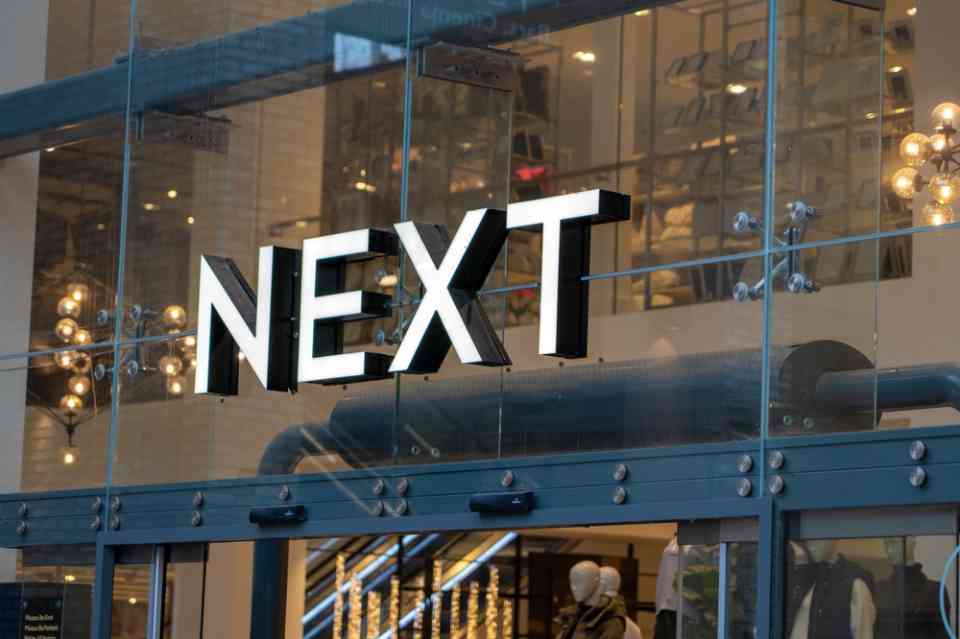Next Targets Premium Wealthy Shoppers Amid Rising Profits and Strategic Shifts

UK retail giant Next is pivoting towards wealthier shoppers, responding to a growing trend of consumers opting for “fewer, better quality” purchases, according to CEO Lord Simon Wolfson. As the company raised its annual profit forecast to nearly $1.3 billion, it also revealed plans to cater to more affluent customers by launching a separate website for high-end third-party brands.
Next, which operates 458 stores across the UK, is expanding its product offerings to include premium brands like APC, Ganni, Joseph, and Rixo, which feature clothing priced in the hundreds rather than tens of pounds. Wolfson told reporters on Thursday that over the past 18 months, there has been a noticeable increase in sales traction at the mid-to-high end of the company’s price ranges, indicating a shift in consumer behavior towards higher-quality items.
Wolfson highlighted that a significant portion of Next’s 8 million online customers is interested in more premium products. This new initiative aligns with the company’s broader strategy to attract wealthier shoppers as the retail landscape shifts.
The move comes as Next revised its pre-tax profit forecast upwards by nearly $20 million to $1.3 billion for the year, representing an 8.4% increase compared to the previous year. This marks the second upgrade of the year, with the company having previously raised its guidance from $1.28 billion to $1.3 billion in August. The forecast contrasts with that of some of its competitors, such as Primark, which recently warned of declining UK sales due to poor weather.
Wolfson credited Next’s success to its ability to “weather the storm” and consistently deliver the right products across the right platforms, emphasizing the company’s financial discipline. Next has been widely praised for its agility in adapting to significant market changes, such as the shift towards online shopping, while many other high street retailers have struggled or disappeared.
In addition to targeting premium shoppers in the UK, Next is also focusing on international growth. The company reported a 23% increase in overseas online sales, reaching $576 million in the first half of the year.
Overall, Next exceeded expectations with a 6.9% increase in full-price sales during the first six weeks of the second half of the year, following strong trading in the first half. For the six months ending in July, full-price sales rose by 4.4%, while pre-tax profits increased by 7.1% to $601 million. Total group sales grew by 8% to almost $3.9 billion.
Next’s strong performance boosted its shares by 3% in morning trading, giving the company a market capitalization of just over $17 billion. However, the company also noted potential challenges ahead. It may be forced to close some stores after losing a legal battle over equal pay last month, a decision Next plans to appeal.
Clive Black, head of consumer research at Shore Capital, commented that despite a tough environment for consumer goods, including apparel, Next has “cleverly set expectations” over time, consistently meeting or exceeding them. He attributed the stock market’s growing affection for Next’s equity to the company’s resilience and ability to consistently deliver small but meaningful beats in performance.
Have you read?
What Business Leaders Can Learn from Top Sporting Event Athletes.
African countries with the highest number of internally displaced persons (IDPs)
Revealed: Countries With the Largest Forex Reserves.
Eric Spofford Is Turning People’s Lives Around as a Business Athlete.
Countries buying the most Black Hawk helicopters.
Bring the best of the CEOWORLD magazine's global journalism to audiences in the United States and around the world. - Add CEOWORLD magazine to your Google News feed.
Follow CEOWORLD magazine headlines on: Google News, LinkedIn, Twitter, and Facebook.
Copyright 2025 The CEOWORLD magazine. All rights reserved. This material (and any extract from it) must not be copied, redistributed or placed on any website, without CEOWORLD magazine' prior written consent. For media queries, please contact: info@ceoworld.biz








